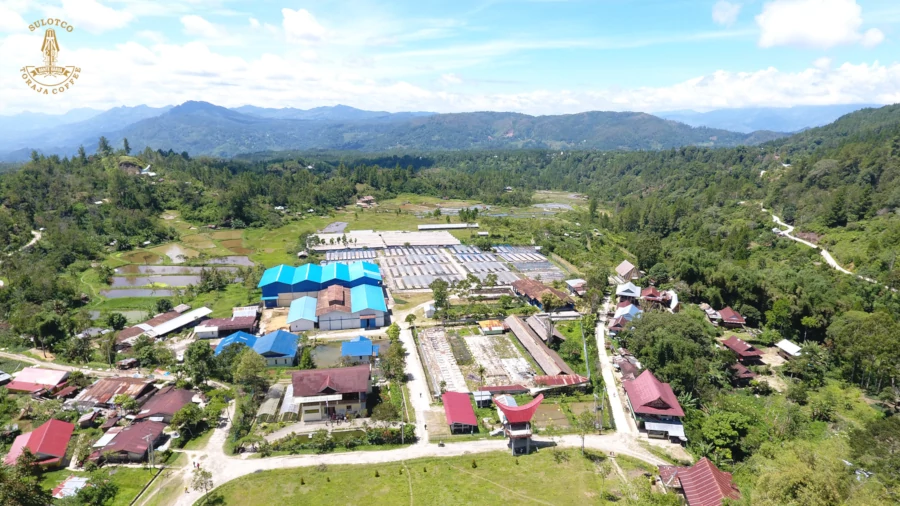Toraja coffee is a type of coffee from Indonesia that is popular abroad. Apart from its delicious and distinctive taste, Toraja Coffee has an interesting history to tell.
Toraja coffee is also known as Celebes Coffee. This name is said to have come from a misunderstanding by the Portuguese when they first arrived in Toraja in the 16th century. At that time, the Portuguese asked local residents about the name of the area. Local residents, who did not understand Portuguese, thought they were asking what they were carrying at that time. Then local residents answered ‘Sele Bessi’ which is a traditional weapon. The Portuguese thought that was the name of the area so they called it Celebes.
Toraja is said to be the first location to grow coffee in Indonesia. Due to the condition of the region consisting of mountains with an altitude of 700-2,100 meters above sea level, Toraja coffee with the Arabica type is usually planted at an altitude of 1,000-2,000 meters above sea level. This coffee was introduced by the Gowa people, as evidenced by the diary of the Gowa Kingdom in the 16th century regarding the voyage of the Gowa people to Toraja carrying coffee. Gowa people themselves get coffee from Arab traders. Another opinion states that the coffee was obtained from Gujarat traders.
Previously, Toraja coffee was called Bungin Coffee, which was the name of a trading port in the Sidenreng area. After that, the name known was Kopi Kalosi which came from the name of the famous Kalosi coffee market in the Enrekang area. The coffee at the Kalosi market comes from the Toraja and Enrekang areas. The Toraja coffee trade in the 17th century became the main factor that saved the economy of South Sulawesi, which then attracted the attention of traders from the kingdoms of Luwu, Bone, Sidenreng, and Sawitto.
Toraja coffee then became increasingly popular, which led to a monopoly war on the Toraja coffee trade in the mid-18th century, which was later called the Coffee War. This war began with the entry of traders from Luwu and Bone to Toraja in search of coffee. Traders from Luwu want to monopolize the coffee trade in Toraja. King of Makale, Lasokbaik, on behalf of the king in Tallulembangna Toraja, then asked for help from the Sidenreng and Enrekang Kingdoms to stop this monopoly. The war occurred in 1887-1888 and was called the First Coffee War.
After stopping for a while, the traders then returned to Toraja, assisted by the Bone Kingdom led by Lamaddukelleng. The Tallulembangna Toraja kings again asked for help from the Sidenreng and Enrekang Kingdoms. The King of Enrekang, La Tanro Arung Buttu, finally met the Bone Kingdom troops and issued an edict that Bones were not allowed to carry coffee through Bambapuang in Enrekang, Wajo, Sidenreng, or Luwu. They are only allowed to bring coffee through Pinrang. This proclamation is agreed upon and complied with by all parties. The Second Coffee War officially ended in 1890.
Coffee continues to grow in the Toraja and Enrekang areas. In the 1900s, a leaf rust epidemic attacked Arabica coffee plants, most of which were typical varieties, and destroyed almost all Arabica coffee plants in both regions. The Dutch then introduced Robusta coffee which was grown at an altitude of less than 1,000 meters above sea level. This coffee then grew well and was further cultivated because of its characteristics of being pest-resistant and easy to maintain. In the 1950s, Arabica coffee was planted again with various varieties such as Lini S, Kartika, USDA, and Cattimor.
The condition of coffee plantations in Toraja also experienced a decline after Independence Day in the era of the DI/TII rebellion in 1953-1965. This is caused by the closure, destruction, or blocking of roads that provide access for coffee trading activities. As a result, coffee trade conditions become hampered and decline. After this incident, activities to restore coffee plantations were gradually resumed.
That is the story of the legendary history of Toraja Coffee. Now the growth of Toraja Coffee is getting better. In fact, Toraja coffee is one of the most sought-after export commodities, so the price is quite competitive. To get quality Toraja Coffee, you can try coffee from the Sulotco coffee plantation on the slopes of the Rantekarua Mountains in Bolokan. You can buy it offline or online at the official Sulotco Jaya Abadi store.





